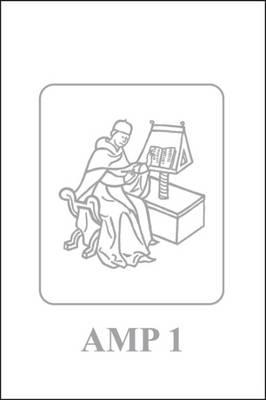Full Product Details
Author: Paul J. J. M. Bakker
Publisher: Leuven University Press
Imprint: Leuven University Press
Volume: 50
Dimensions:
Width: 16.00cm
, Height: 2.00cm
, Length: 23.90cm
Weight: 0.907kg
ISBN: 9789462700468
ISBN 10: 946270046
Pages: 280
Publication Date: 17 November 2015
Audience:
General/trade
,
General
Format: Hardback
Publisher's Status: Active
Availability: In Print

This item will be ordered in for you from one of our suppliers. Upon receipt, we will promptly dispatch it out to you. For in store availability, please contact us.
Language: French
Reviews
"Considered as a whole, the articles in this volume provide us with a better and deeper understanding of the reception of Averroes' natural philosophy in the Latin West by means of examining topics which are usually not common in current academic discussion, either by choosing a new focal point or by the selection of authors commenting on Averroes. If anything is missing, then it would be an article explaining what is natural philosophy, since this tends to be identified with physics. However, by including psychology the reader can get the idea of the wide range of topics covered under the label ""natural philosophy"" in the Middle Ages. Pilar Herráiz Oliva, The Medieval Review, 17-01-01 These are all very high-quality essays, each brimming with subtle insights into the way that themes and philosophical puzzles in Aristotle were framed in Averroes’s works through the lens of late antique commentary, and how the Latin scholastics then furthered the agenda through their own creative work as well as further comparisons with other eminent philosophers of the likes of Augustine and Avicenna.Taneli Kukkonen, Journal of the History of Philosophy, vol. 56 number 3 (July 2018) * Journal of the History of Philosophy * Het geheel van deze zeven bijdragen biedt ontegensprekelijk heel wat vernieuwende visies op een aantal natuurfilosofische inzichten van Averroës, met een bijzondere aandacht voor de receptie ervan in het Latijnse Westen. Het niveau van deze bundel steekt duidelijk boven het gemiddelde van gelijkaardige verzamelwerken uit. We hopen dan ook dat hij de aandacht zal krijgen die hij verdient.Jules Janssens, Tijdschrift voor Filosofie, 80/2018, doi: 10.2143/TVF.80.3.3285689"
Het geheel van deze zeven bijdragen biedt ontegensprekelijk heel wat vernieuwende visies op een aantal natuurfilosofische inzichten van Averroës, met een bijzondere aandacht voor de receptie ervan in het Latijnse Westen. Het niveau van deze bundel steekt duidelijk boven het gemiddelde van gelijkaardige verzamelwerken uit. We hopen dan ook dat hij de aandacht zal krijgen die hij verdient.Jules Janssens, Tijdschrift voor Filosofie, 80/2018, doi: 10.2143/TVF.80.3.3285689 These are all very high-quality essays, each brimming with subtle insights into the way that themes and philosophical puzzles in Aristotle were framed in Averroes’s works through the lens of late antique commentary, and how the Latin scholastics then furthered the agenda through their own creative work as well as further comparisons with other eminent philosophers of the likes of Augustine and Avicenna.Taneli Kukkonen, Journal of the History of Philosophy, vol. 56 number 3 (July 2018) * Journal of the History of Philosophy * Considered as a whole, the articles in this volume provide us with a better and deeper understanding of the reception of Averroes' natural philosophy in the Latin West by means of examining topics which are usually not common in current academic discussion, either by choosing a new focal point or by the selection of authors commenting on Averroes. If anything is missing, then it would be an article explaining what is natural philosophy, since this tends to be identified with physics. However, by including psychology the reader can get the idea of the wide range of topics covered under the label ""natural philosophy"" in the Middle Ages. Pilar Herráiz Oliva, The Medieval Review, 17-01-01
Author Information
Paul J.J.M. Bakker is Professor of Medieval and Renaissance Philosophy at Radboud University Nijmegen.




